About broader international collaborations
As well as our bilateral work, the team work with partner countries, collaborating multilaterally. For example, we represent the UK at international engineering organisations such as CAETS and Euro-CASE.
We also work with our sister academies to tackle global challenges, positioning UK researchers and innovators at the heart of global solutions. This work also tends to focus on the themes of: Planet, Health, Tech, and Talent. Recent examples includes our participation in a ‘megaprojects’ workshop, and our trilateral partnership: the Global Grand Challenges Summit.
Membership organisations
The Academy represents the United Kingdom in CAETS and Euro-CASE - international networks of engineering, science and technology.
Council of Academies of Engineering and Technological Sciences
The Council of Academies of Engineering and Technological Sciences (CAETS) is an independent, non-political, international alliance of independent, non-governmental engineering and technology academies from 31 countries. The Royal Academy of Engineering is the UK’s member.
We attend the annual CAETS conference, which serves as a forum for driving global engineering leadership on pressing technology-related issues. The Academy chair's two CAETS working groups: diversity and inclusion and engineering for the SDGs. We also attend working group meetings which focus on engineering education and AI.
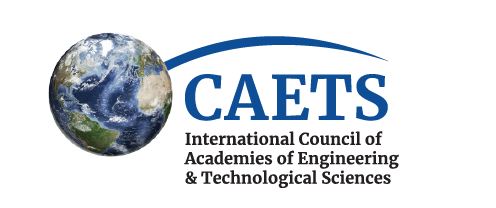
European Council of Applied Sciences, Technologies and Engineering
The European Council of Applied Sciences, Technologies and Engineering (Euro-CASE) is an independent, non-profit organisation for academies of applied science and technology, consisting of 23 European countries. The Royal Academy of Engineering is the UK’s member.
Euro-CASE exists to provide independent scientific advice to policymakers, including to the European Commission via the Science Advice Mechanism. Our membership of Euro-CASE enables us to project the voice of UK engineering in European policymaking on topics of interest to the Commission’s Group of Chief Scientific Advisors.
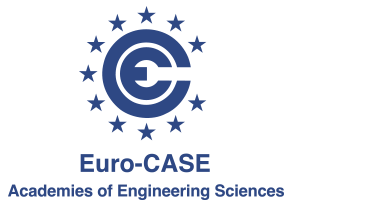
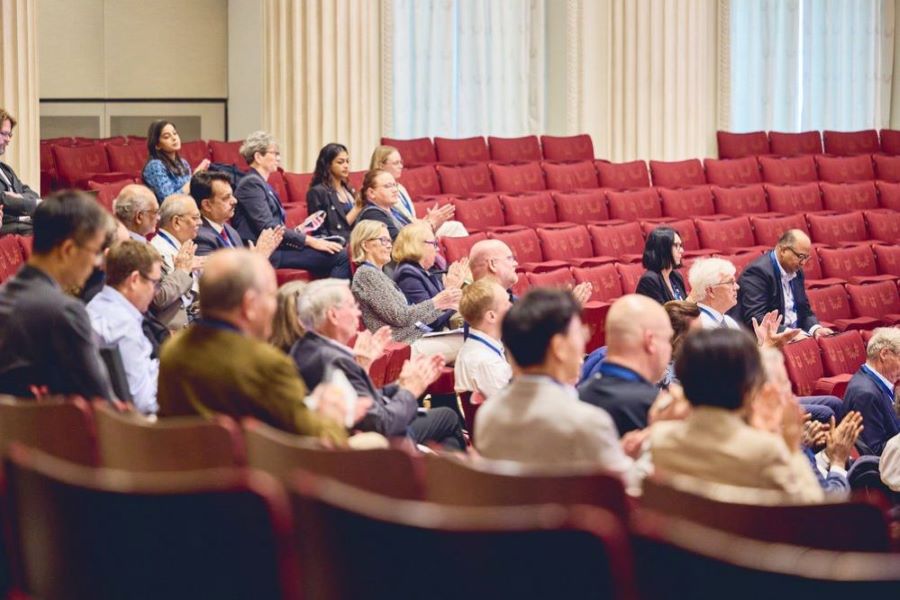
CAETS Conference, July 2024
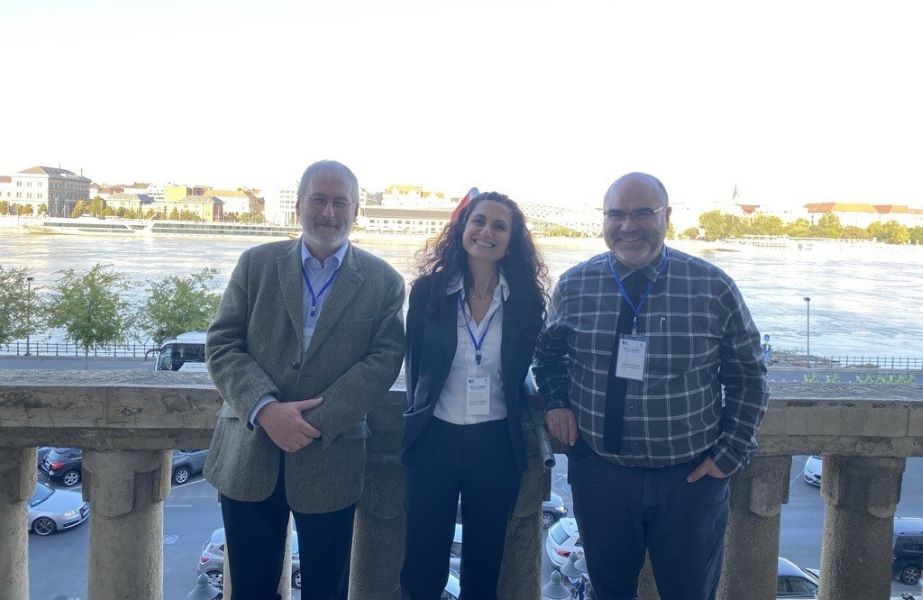
Prof John Clarkson FREng, Prof Mirella Di Lorenzo and Prof Alejandro Frangi FREng at Euro-CASE 2024
Multilateral collaborations
We are keen to partner with other academies to tackle global challenges, with the Global Grand Challenges Summit highlighting the importance of collaboration.
Design and delivery of large engineering projects: an ideas forum, 2024
On 3 and 4 June the Academy took part in an inter-academy workshop on 'megaprojects' in partnership with the Canadian Academy of Engineering, National Academy of Engineering, and the Australian Academy of Technological Sciences and Engineering. You can watch the event online.
Global Grand Challenges Summit
The Global Grand Challenges Summit (GGCS) series is a trilateral partnership between the UK, US (NAE) and Chinese (CAE) national academies of engineering. Inspired by the 14 Grand Challenges for Engineering, the summit aims to bring together inspirational global engineering leaders with the next generation of engineers and changemakers, and explore how to address grand challenges. Since its launch in 2013 summits have taken place every two years.
The event convenes inspirational world leaders with the next generation of engineers and changemakers to build creative collaborations and solve the grand challenges facing our future world.
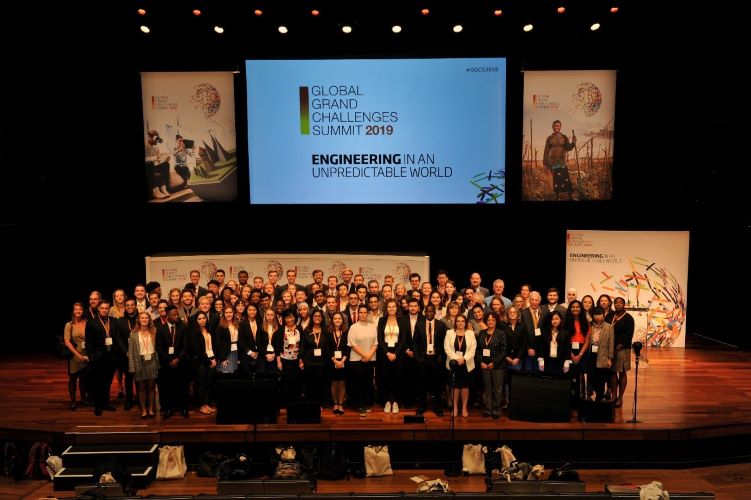
Global Grand Challenges Summit, 2019
2019: Engineering in an unpredictable world
The Global Grand Challenges Summit 2019 launched the second series of summit, jointly hosted by the UK, US and Chinese academies of engineering. It took place on 16-18 September 2019 in London, at the Southbank Centre’s Queen Elizabeth Hall, with over 700 of the next generation’s engineers, researchers, innovators, entrepreneurs, and policymakers in attendance. The summit was broadcast worldwide via livestream, with satellite events on every continent, creating a truly global effort in addressing these Global Grand Challenges.
Humanity is facing unprecedented challenges from a population growing to 10 billion by 2050, and accelerating degradation of the planet and its resources. At the same time, exponential technological changes are making the world smarter, faster and more connected, but with unanticipated consequences.
Engineers are crucial to the international effort to address these rapidly evolving, unpredictable challenges. We need to embed collaboration, diversity, and global responsibility into the solutions we create, transforming the way engineers work, think, and are taught.
Engineers have the power to help make a better world for the citizens of 2050, but only if we transform engineering and embrace that responsibility today.
Under this, the summit had two sub-themes, that related both to the US National Academy of Engineering’s 14 grand challenges, and recognised and captured the Sustainable Development Goals:
- ‘Will AI and other transformational technologies change humanity for the better?’
- ‘Can we sustain 10 billion people?’
2021: Engineering’s role in catalysing Covid-19 response, recovery and resilience
International collaboration has never been more important than during the COVID-19 pandemic. The three academies published a joint statement on COVID-19, committing to work together to promote international exchange and contribute to global economic recovery and a more robust public health system.
This culminated in a webinar series led by the Academy, NAE and CAE entitled engineering's role in catalysing COVID-19 response, recovery and resilience. This series explored the work of researchers and innovators across the globe pursuing the most impactful engineering advances related to the COVID-19 pandemic. The first webinar, engineering innovations in response to the challenges of the pandemic was held on 19 April 2021. The second, engineering innovations empowering recovery from the pandemic, took place 23 July 2021. The final, engineering for a healthy and resilient future, was held 20 October 2021.
2023: Sustainable infrastructure, carbon neutrality and digital economy
The 2023 summit took place in Beijing with RAEng and the NAE attending online. It was held on 18 - 20 September 2023, hosted by the CAE. The programme included sessions on the topics of: engineering the transition to carbon neutrality, sustainable infrastructure, and engineering approaches to a digital economy.
GGCS 2023 closed with presentation of a statement signed by the president's of each academy, highlighting the success of the summit series to date and the academies' commitment to collaboration.
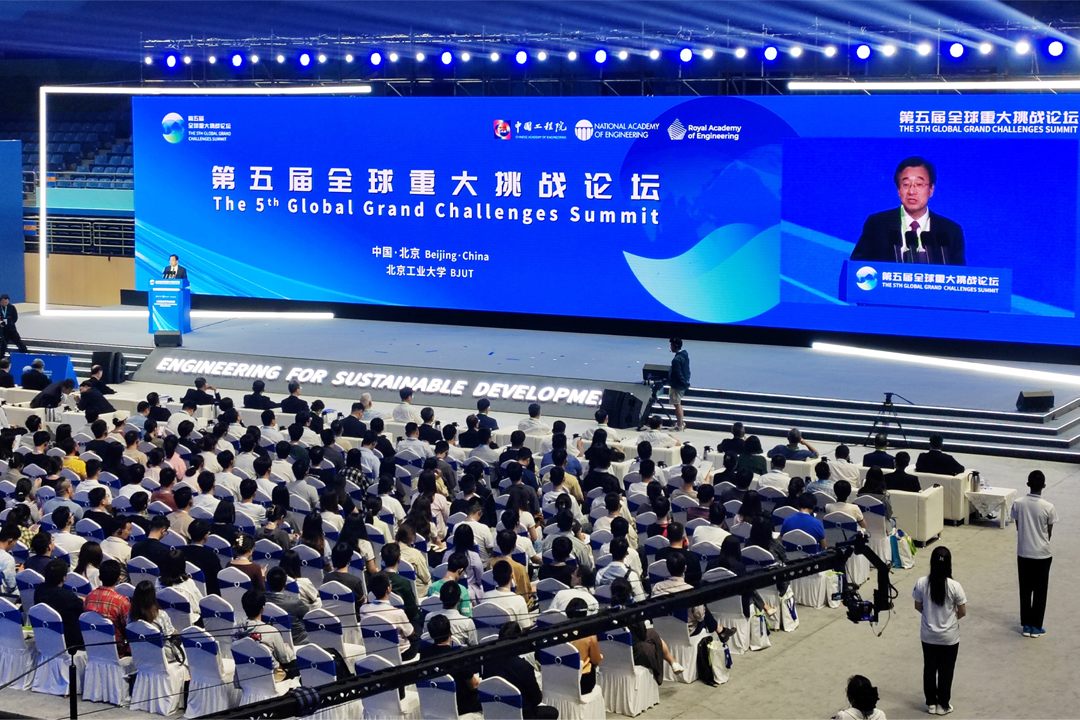
Global Grand Challenges Summit, 2023
